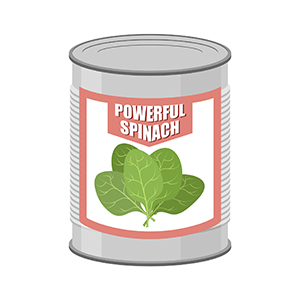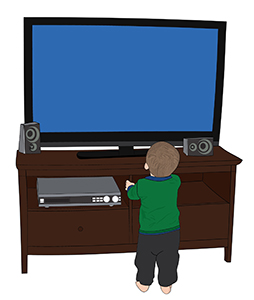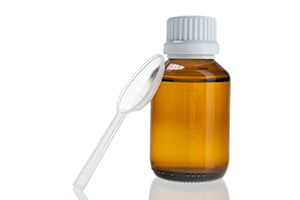DEMYSTIFYING MEDICAL MYTHS

By Jamie Wells, MD, FAAP
As a child, I followed all the rules. If I was told eating my spinach would make me grow big and strong, then you could consider it done. Not so much now, but maybe that’s a topic for another article. As a member of the undersized set, I am still waiting. When am I supposed to grow big and be strong? (Alright, I never actually ate spinach as a kid, so that too is a myth.)

MYTH #1
The Popeye with spinach effect originated from a long recounted story of a German chemist who supposedly made a calculation error in the late 19th century. Consequently, he valued the iron content of spinach at ten times more than any other green vegetable. Clarified in 1937, the train already left the station on the myth as the popularized Popeye cartoon predated this correction. Sales of the muscle-strengthening vegetable increased substantially and the parental refrain was born. In 2010, criminologist Dr. Mike Sutton published an exhaustive account of his investigation into Spinach, Iron, and Popeye: Ironic Lessons From Biochemistry and History Lessons From Biochemistry and History on the Importance of Healthy Eating, Healthy Skepticism, and Adequate Citation. (Whew!) He asserts E.C. Segar, the lovable sailor’s creator, chose initially to endorse spinach consumption for its valuable vitamin A content, not iron. Additionally, he extensively probes the concept of a scientific mistake versus sloppy research. The answer becomes irrelevant as he achieves his purpose of underscoring the importance of fact-checking, exploring studies firsthand and always being open to reexamining the status quo. So, is the myth even the real myth? Or, is the myth of the myth the story?

MYTH #2
My head hurts. Or, maybe I have eye damage from watching TV up close. Alas, we have ourselves another misconception. In the 1960s, a batch of new color television sets emitted excessive amounts of radiation which was implicated in eye damage. Naturally, the TVs were rapidly recalled without prompting a widespread issue. Though remedied by 1968, the belief stuck. The American Academy of Ophthalmologists debunked this myth stating that sitting too close to the TV does not cause damage, but can cause transient eye strain or fatigue easily cured by turning it off and going to sleep. They reiterate that a child sitting too close might be more accurately one who is not being properly treated for nearsightedness. If your offspring exhibits this behavior, then a trip to the eye doctor might open their eyes (to seeing well)!

MYTH #3
We’ve all heard it! Drink eight glasses of water per day. Or, not. It sounds silly doesn’t it to think that individuals of all shapes and sizes in varying regions of the world no matter the season or occupation be given an identical recommendation for fluid consumption? Ask the right questions. Be inquisitive. When something doesn’t seem to make sense, it is often because it doesn’t make any sense. In 1945, the Food and Nutrition Board of the National Research Council promoted that people should consume 2.5 liters of water a day (that’s eight glasses). The media took hold, and the message became just that and all in the form of drinking water. What was ignored in their statement, was the fact that much of that fluid can come from food as well as other beverages. When it comes to an otherwise healthy person, the body is a very efficient machine. In a typical day without inclement weather or extreme physical exertion and in standard office settings, an individual is not at constant risk of dehydration.
Those, however, with chronic disease, acute illness and on certain medicines are not included in this mix. To learn what your individual needs are, the safest bet is to speak to your personal physician who knows the true extent of your medical history and physical examination. A good way to monitor things is to look at your urine. Too dark or concentrated, for instance, you would likely benefit from some water. A well-hydrated person urinates freely, has moist mucous membranes (aka lots of saliva in the mouth), supple skin and is alert and, hopefully, vigorous. One who is dehydrated will have a decrease in urine output, sunken eyes, tinted skin, and in severe cases be confused, lightheaded, weak, and irritable.

MYTH #4
Who doesn’t want to believe certain myths? I do, especially if it eliminates any thought I need to invest and makes me healthier in the process. We all love the quick fix elixir. Tell me to eat ten barbecued lentils a day and not have to exercise and, snap; I will instantaneously look like a supermodel! Umm, no joke, I doubt I would do it, but you can be assured I’d investigate it. For the public’s greater good, of course! As it is, I only check my height first thing in the morning. How else do you think my driver’s license has my ‘legal’ height of 5 feet 2 inches? Through the course of daily wear-and-tear, our discs in our spines compress so we are shorter towards the end of the day—sometimes by up to half an inch. The bottom line is there are rarely shortcuts to leading a healthy active lifestyle that doesn’t entail eating a well-balanced diet and getting off that couch.
The myths discussed and countless others tend to take up a significant amount of the doctor’s visit debunking. Most spawn from a kernel of truth taken to excess. One magical medicine or food to cure all ails is a highly unlikely occurrence in our lifetimes. It is also essential to realize that even if one source of nourishment is proven to be of tremendous benefit, then this information must be put into the context of one’s other sustenance and lifestyle. Each impacts the other. One-size-fits-all-medicine is not a present reality as the individual is truly the variable. We have diverse body surface areas, unique defenses against infection and genetic and environmental differences that nuance our responses. Hence, why some people tolerate a medication while others do not. So, beware of absolutes in healthcare; for, if something seems too good to be true, it usually is.
Dr. Jamie Wells is a Yale-educated, award-winning, Board-Certified physician with over a decade of experience caring for patients and the Director of Medicine at the American Council on Science and Health. To learn more, go to acsh.org. Follow her on Twitter @jamiewellsmd.



